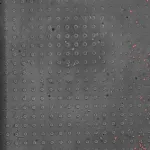(Press-News.org) Researchers from The Australian National University (ANU) have discovered a previously unknown ability of a group of immune system cells, known as Atypical B cells (ABCs), to fight infectious diseases such as malaria.
The discovery provides new insight into how the immune system fights infections and brings scientists a step closer to harnessing the body’s natural defences to combat malaria.
The scientists say ABCs could also be key to developing new treatments for chronic autoimmune conditions such as lupus.
According to the researchers, ABCs have long been associated with malaria, as malaria patients have more of these cells in their system compared to the general population.
“In this study, we wanted to understand the mechanisms that drive the creation of ABCs in the immune system, but also find out whether these cells are good or bad for us when it comes to fighting infection,” lead author Dr Xin Gao, from ANU, said.
“Although ABCs are known to contribute to chronic inflammatory diseases and autoimmunity, we’ve discovered a previously unknown ability of these cells to fight disease. In this sense, ABCs are like a double-edged sword.
“Contrary to past belief, ABCs are not junk cells; they are more important than we thought.
“Our research found that ABCs are also instrumental in developing T follicular helper cells. These helper cells generate powerful antibodies that help the body fight malaria parasites.
“Antibodies can block parasites in the blood as they travel from the site of the infectious mosquito bite to the liver, where the infection is first established.”
In 2022, malaria killed more than 600,000 people worldwide. Although the disease is preventable and curable, scientists face an uphill battle to find long-lasting treatments as malaria parasites continue to find new ways to build resistance to current therapies.
Using gene-editing technology on mice, the ANU researchers discovered a gene called Zeb2 is crucial to the production of ABCs.
“We found that manipulating the Zeb2 gene disrupted the creation of ABCs in the immune system,” study co-author Professor Ian Cockburn, from The ANU John Curtin School of Medical Research, said.
“Importantly, we found that mice without the Zeb2 gene were unable to control malaria infection.
“Therefore, the findings show that ABCs play a crucial role in fighting malaria infections.”
The researchers say targeting ABCs could also pave the way for new treatments for certain autoimmune diseases such as lupus.
“ABCs also appear in large numbers in many autoimmune diseases, including lupus, which can be life-threating in severe cases,” Professor Cockburn said.
“By developing a better understanding of the role of ABCs in the immune system and the cells’ role in fighting disease, it could bring us a step closer to one day developing new and more effective therapies.”
The research is published in Science Immunology.
END
ANU scientists debunk role of ‘junk cells’ in fight against malaria
2024-02-08
ELSE PRESS RELEASES FROM THIS DATE:
Fibroblasts in the penis are more important for erectile function than previously thought
2024-02-08
Regular erections could be important for maintaining erectile function, according to a new study on mice published in Science by researchers at Karolinska Institutet. “We discovered that an increased frequency of erections leads to more fibroblasts that enable erection and vice versa, that a decreased frequency results in fewer of these cells,” says principal investigator Christian Göritz.
In a new study on mice, researchers at Karolinska Institutet and Uppsala University in Sweden ...
MIT physicists capture the first sounds of heat “sloshing” in a superfluid
2024-02-08
In most materials, heat prefers to scatter. If left alone, a hotspot will gradually fade as it warms its surroundings. But in rare states of matter, heat can behave as a wave, moving back and forth somewhat like a sound wave that bounces from one end of a room to the other. In fact, this wave-like heat is what physicists call “second sound.”
Signs of second sound have been observed in only a handful of materials. Now MIT physicists have captured direct images of second sound for the first time.
The new images reveal how heat can move like a wave, ...
How emotions affect word retrieval in people with aphasia
2024-02-08
COLUMBUS, Ohio – People with aphasia have more trouble coming up with words they want to use when they’re prompted by images and words that carry negative emotional meaning, new research suggests.
The study involved individuals whose language limitations resulted from damage to the brain caused by a stroke – the most common cause of aphasia, affecting at least one-third of stroke survivors. The disorder impairs the expression and understanding of language as well as reading and writing.
Researchers from The Ohio State University who led the study said the findings – suggesting that prompts ...
Pregnant women living in states with limited access to abortion face higher levels of intimate partner homicide
2024-02-08
Key Takeaways
Young women under the age of 30, Black women, and women with lower education levels are disproportionately affected by intimate partner homicide during pregnancy, reflecting the need to better serve and protect these vulnerable populations.
Particularly by firearms, increasing rates of intimate partner homicide of women who are pregnant or recently pregnant are occurring in states that have limited access to abortion.
Researchers describe a ‘dire ...
Researchers uncover genetic factors for severe Lassa fever
2024-02-08
While combing through the human genome in 2007, computational geneticist Pardis Sabeti made a discovery that would transform her research career. As a then postdoctoral fellow at the Broad Institute of MIT and Harvard, Sabeti discovered potential evidence that some unknown mutation in a gene called LARGE1 had a beneficial effect in the Nigerian population. Other scientists had discovered that this gene was critical for the Lassa virus to enter cells. Sabeti wondered whether a mutation in LARGE1 ...
Leader in robotics at U-M and beyond elected to National Academy of Engineering
2024-02-08
Feb. 8, 2024
Contact: Katherine McAlpine, 734-647-7087, kmca@umich.edu
Image
Leader in robotics at U-M and beyond elected to National Academy of Engineering
Dawn Tilbury is recognized for advances in manufacturing network control and human-robot interaction, as well as engineering leadership
ANN ARBOR—Dawn Tilbury, the Ronald D. and Regina C. McNeil Department Chair of Robotics at the University of Michigan, has been recognized with one of engineering's greatest honors—election to the National Academy of Engineering.
NAE members are outstanding researchers, ...
16 UTA scholars receive McNair federal research award
2024-02-08
A competitive U.S. Department of Education program that prepares undergraduate students interested in careers in academic research has selected 16 undergraduate students from The University of Texas at Arlington to join.
The McNair Scholars Program was named for physicist and astronaut Ronald E. McNair, the second Black astronaut in U.S. history and one of several crew members killed when the space shuttle Challenger exploded on Jan. 28, 1986. The program assists qualified first-generation ...
Nanofiber bandages fight infection, speed healing
2024-02-08
ITHACA, N.Y. – Cornell University researchers have identified a new way to harness the antioxidant and antibacterial properties of a botanical compound to make nanofiber-coated cotton bandages that fight infection and help wounds heal more quickly.
The findings are especially important given the increasing prevalence of multidrug-resistant bacteria.
Cotton gauze is one of the most common wound dressings; it’s inexpensive, readily available, comfortable and biocompatible. However, it doesn’t promote healing or fight infection.
“Cotton alone cannot provide an answer for these ...
Newly discovered genetic malfunction causes rare lung disease
2024-02-08
The macrophage is one of the body’s most important inhabitants. Meaning “big eater” in Greek, this immune cell consumes and digests problematic elements from microbes and cancer cells to dust and debris. Macrophages are especially important in the lungs, where they both fight bacterial infection and clear the lungs of excess surfactant, a protein- and lipid-rich layer that’s essential to healthy function but can create a sticky buildup if not controlled.
In a recent study, investigators from Rockefeller University ...
Even with resolution, acute kidney injury in newborns can be life-threatening from very first episode
2024-02-08
Our resilient kidneys are invaluable members of the body’s purification system, and they excel at bouncing back after injury. This even holds true for most sick infants in the neonatal intensive care unit. Because of this remarkable ability, dips in kidney function in infants were often overlooked historically in favor of other pressing diseases or symptoms.
But physicians and researchers have shown increased interest in understanding kidney health in newborns and young infants within the last decade, leading to the AWAKEN study (Assessment of Worldwide Acute Kidney Epidemiology in Neonates). With initial ...



